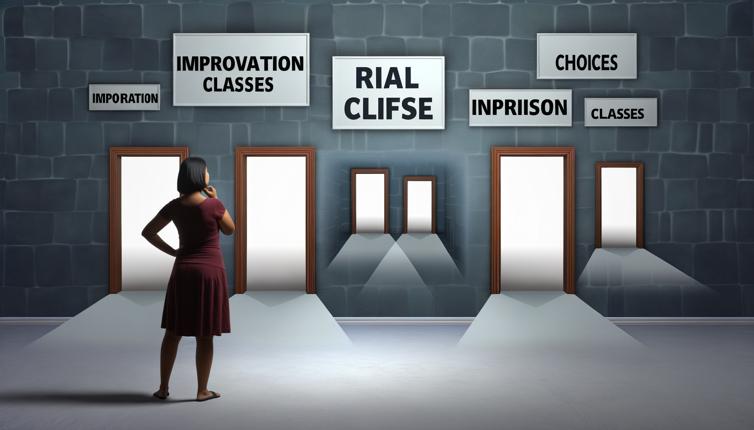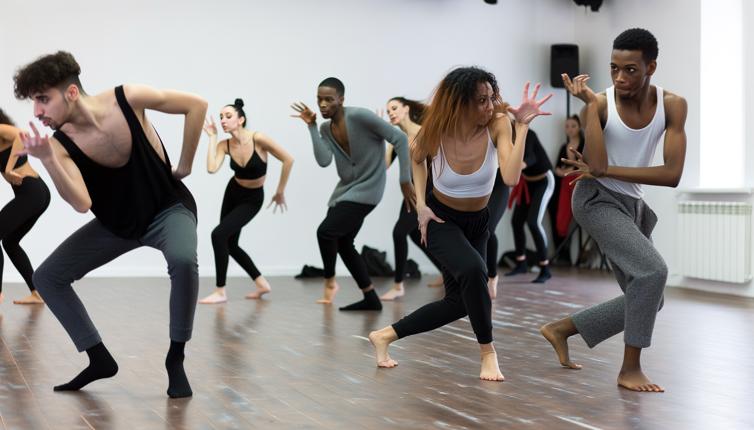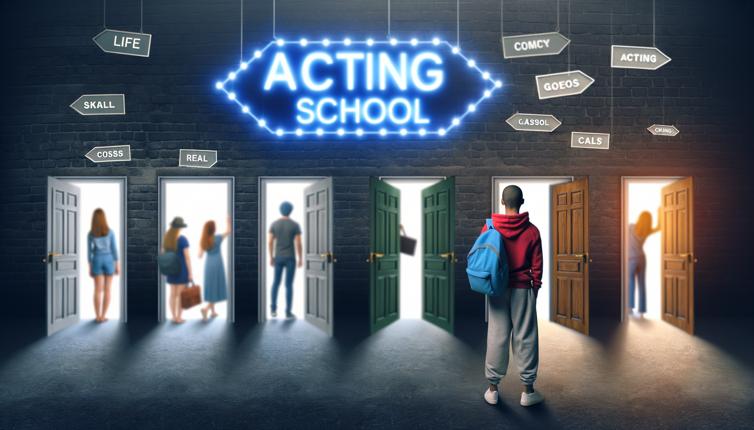Assess Your Skill Level
The first step in choosing the best improv class is to assess your current skill level. Are you a beginner who is just starting out, or do you have some previous experience? This will help you determine whether you should look for a beginner-level class or an intermediate/advanced class.,If you are not sure about your skill level, don't worry! Many improv schools offer introductory workshops or classes specifically designed for beginners. These classes will provide you with a solid foundation and help you build your confidence before moving on to more advanced techniques.
Define Your Goals
Next, it's important to define your goals for taking an improv class. Are you looking to improve your public speaking skills, enhance your creativity, or simply have fun and meet new people? Identifying your goals will help you narrow down your options and find a class that aligns with what you want to achieve.,If your goal is to improve your public speaking skills, you may want to consider a class that focuses on storytelling and communication. If you're more interested in developing your comedic timing and improvisational skills, a class that emphasizes comedy improv may be the best fit.
Research Improv Schools and Classes
Once you have a clear understanding of your skill level and goals, it's time to research improv schools and classes in your area. Look for reputable schools that have experienced instructors and positive reviews from past students. You can also ask for recommendations from friends, colleagues, or local theater groups.,Visit the websites of different improv schools to learn more about their curriculum, class schedules, and instructor bios. Pay attention to the class descriptions and see if they align with your goals and interests. Some schools may offer specialty classes or workshops focused on specific improv techniques or genres.,Don't be afraid to reach out to the schools directly and ask for more information. They will be happy to answer any questions you have and provide guidance on which classes may be the best fit for you.
Attend Trial Classes or Workshops
Before committing to a long-term improv class, consider attending trial classes or workshops. Many improv schools offer introductory workshops or drop-in classes that allow you to experience their teaching style and get a taste of what the classes are like.,Attending trial classes or workshops will give you an opportunity to meet the instructors, interact with other students, and see if the teaching approach and class atmosphere resonate with you. It's also a great way to assess whether the class is challenging enough for your skill level or if it's too advanced.,Take notes during these trial classes or workshops and evaluate the experience afterwards. Consider factors such as the instructor's ability to create a supportive and inclusive environment, the techniques and exercises taught, and how well the class aligns with your goals and interests.
Consider Your Schedule and Budget
When choosing an improv class, it's important to consider your schedule and budget. Look for classes that fit into your existing commitments and are convenient for you to attend. Some improv schools offer classes on evenings or weekends, while others may have daytime options.,Additionally, take into account the cost of the classes. Improv classes can vary in price depending on the school, class duration, and the level of instruction. Determine a budget that you're comfortable with and find classes that fall within that range. Keep in mind that investing in your improv skills can have long-term benefits, so consider it an investment in yourself.,If budget is a concern, some schools may offer scholarships or discounts for students who demonstrate financial need. Don't hesitate to inquire about these options and see if they are available.
Conclusion
Choosing the best improv class for your skill level and goals requires careful consideration and research. By assessing your skill level, defining your goals, researching improv schools, attending trial classes or workshops, and considering your schedule and budget, you can find the perfect fit for your improv journey. Remember to have fun and embrace the unexpected as you embark on this exciting learning experience.









